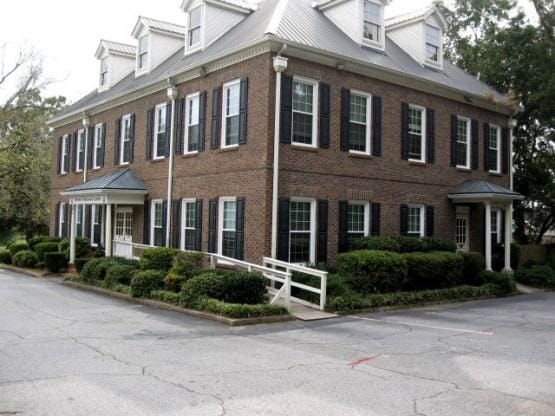Women and men are affected differently by addiction, which is why MARR offers gender-specific and gender-separate residential treatment programs for drug and alcohol addiction. The Women’s Recovery Center offers a safe and structured space for clients to begin the journey of recovery and uncover the core issues that contribute to substance use. In an environment that’s compassionate, nonjudgmental and stripped of distractions, women are able to focus entirely on their recovery and dedicate all of their efforts to getting well.
ABOUT MARR WOMEN’S RECOVERY CENTER
Set in the suburban Atlanta city of Lawrenceville, Ga., the Women’s Recovery Center (WRC) at Metro Atlanta Recovery Residences (MARR) offers residential substance abuse and dual diagnosis treatment for adult females. A minimum 90-day commitment is required, and clients may stay up to one year in an extended program if necessary. Detox services are not available on-site.
TREATMENT & ASSESSMENT
MARR’s 90-day program for women is divided into two phases. During the first 30 to 45 days, clients participate in intensive day treatment, which includes group therapy, educational classes, 12-step work, and specialized groups for issues such as disordered eating, anxiety and depression, PTSD and trauma, and codependency.
During the second phase, which typically lasts 60 days, clients are required to find a job (either paid or voluntary) and balance their schedules with therapeutic groups and recovery work. They are also expected to attend local AA or NA meetings and start working with a sponsor. A specialized track for professionals (such as doctors, pharmacists, pilots, nurses, teachers, and attorneys) is offered, as is an intensive, three-day family program.
STAFF CREDENTIALS
The facility’s staff is made up of a variety of professionals, including a medical director with a specialization in addiction psychiatry. Other credentials include licensed professional counselors (LPC) and addiction counselors (LAPC), social workers (LCSW), and marriage and family therapists (LMFT).
ACCOMMODATIONS & AMENITIES
Life skills are taught experientially at MARR Women’s Recovery Center, and residents live in a homey redbrick townhouse and share daily chores. There is no cafeteria on campus; residents are taken on regular grocery store outings and are required to prepare their own meals.
WHAT ALUMNI SAY
Some alumni reviews indicate that MARR offers an effective, no-nonsense treatment program. Former client Julie told Best-rehabs.com that she would “recommend this place to anyone seeking serious treatment not the fluff(30 days)!”
On CiteHealth, where MARR received a 2.5-star average rating from six reviewers to date, an anonymous former client wrote: “MARR has saved my life. The staff here is amazing. MARR has turned into not only my treatment center but a home away from home.”[1]
One opposing report was uncovered on CiteHealth. An anonymous alum called the treatment experience “completely futile,” and felt that the medical staff was incompetent and irresponsible. The reviewer also claimed that “the physician is rarely seen and the nurse is a joke.”
WHAT FRIENDS & FAMILY SAY
One anonymous family member surveyed by Best-rehabs.com felt that the program was “too lenient. They allow the patient to dictate the treatment. This facility used to be very good. I do not understand how my niece was able to manipulate them.”
On CiteHealth, another anonymous reviewer reported poor communication with staff: “[They] did not tell me there were any issues with my child until they made the decision to ‘dismiss’ her. Young and immature staff who do not understand the ramifications of their decisions.”
But others offered positive feedback, such as the anonymous loved one who told Best-rehabs.com that the facility “offered our family the opportunity to be involved with group therapy with our daughter.”
FINANCING
The cost of treatment at MARR is $25,350. The facility is out-of-network with insurance providers: it will supply statements that can be submitted to insurance providers, and can work with insurers to maximize use of benefits, but it does not submit claims or accept insurance up-front. This policy is designed to ensure that treatment isn’t curtailed by insurers imposing time limits.
[1]
